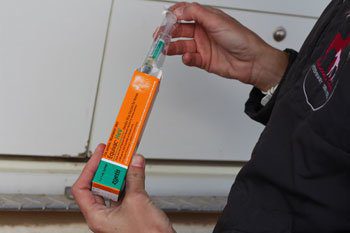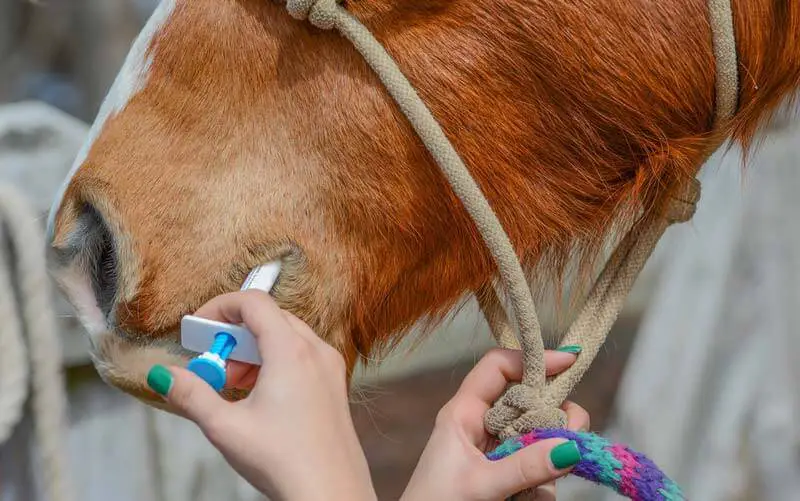
While Hendra vaccination isn’t mandatory, your horse’s health is at risk if unvaccinated. Hendra virus is deadly to horses and humans, and any horse showing signs of illness may be refused treatment as a safety precaution.
It’s important that you discuss your veterinarian’s policies before your horse requires any type of treatment, so you’re prepared in the event your horse is unwell and Hendra virus is suspected.
Your veterinarian may require your horse to be confirmed Hendra negative before providing medical care, including potentially life-saving treatment, such as surgery.
Hendra virus is transferred from bat to horse, then horse to human. Even simple, routine procedures, such as castration and dental examinations, may potentially expose your veterinarian to this deadly disease.
Without vaccination, not only is your horse’s life at risk, but so too are the lives of anyone who comes into contact with a Hendra positive horse.
The first reported case of Hendra virus occurred in September 1994 in the Brisbane suburb
of Hendra. While the threat of Hendra virus is mostly limited to Queensland and New South Wales, the mortality rate is high for horses and humans if exposed.
Hendra virus is carried by bats and spread via contamination of your horse’s food or water by bats bodily fluids. The difficulty with Hendra virus is that its clinical signs are similar to other common health problems, like colic.
The common signs of Hendra virus include:
• Acute onset of illness
• Increased body temperature
• Weight shifting
• Depression
• Increased respiratory rate
• Nasal discharge
• Head tilting or circling
• Muscle twitching
• Urinary incontinence
There are no treatment options available for Hendra virus. If your horse is diagnosed with Hendra virus, they must be humanely euthanised immediately.



